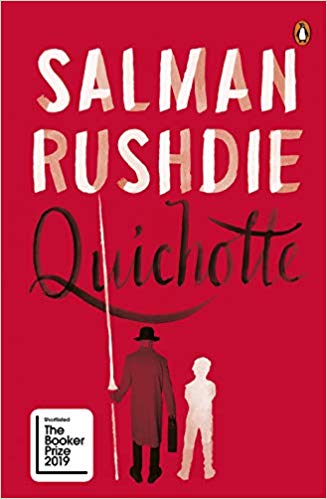An extract from Salman Rushdie’s novel “Quichotte”
Quichotte is a retelling of Cervantes Don Quixote. In this modern version a salesman of Indian origin, Ismail, travels across America on a quest in search of his beloved, a TV talk show host, Salma. Ismail is joined on his journey by his son. This is a mix of every kind of literary tradition — such as a play on the unreliable narrator of Moby Dick, “Call me Ishmael” — along with the anxiety of contemporary life — growth of fascism in global politics, migration, refugees, disintegration of families etc. It is a novel meant to be relished slowly as it is packed with wise observations apart from plain good storytelling. The following is a an extract from the novel that is impossible to forget:
An interjection, kind reader, if you’ll allow one: It may be argued that stories should not sprawl in this way, that they should be grounded in one place or the other, put down roots in the other or the one and flower in that singular soil; yet so many of today’s stories are and must be of this plural, sprawling kind, because a kind of nuclear fission has taken place in human lives and relations, families have been divided, millions upon millions of us have traveled to the four corners of the (admittedly spherical, and therefore cornerless) globe, whether by necessity or choice. Such broken families may be our best available lenses through which to view this broken world. And inside the broken families are broken people, broken by loss, poverty, maltreatment, failure, age, sickness, pain, and hatred, yet trying in spite of it all to cling to hope and love, and these broken people — we, the broken people! — may be the best mirrors of our times, shining shards that reflect the truth, wherever we travel, wherever we land, wherever we remain. For we migrants have become like seed-spores, carried through the air, and lo, the breeze blows us where it will, until we lodge in alien soil, where very often — as for example now in this England with its wild nostalgia for an imaginary golden age when all attitudes were Anglo-Saxon and all English skins were white — we are made to feel unwelcome, no matter how beautiful the fruit hanging from the branches of the orchards of fruit trees that we grow into and become.


No Comments